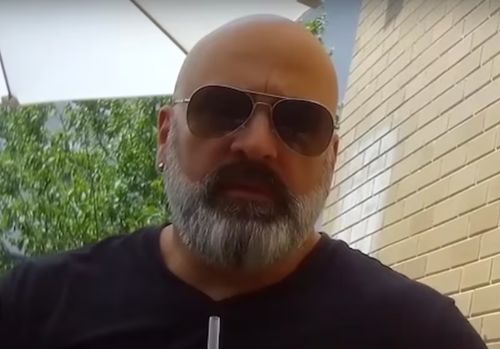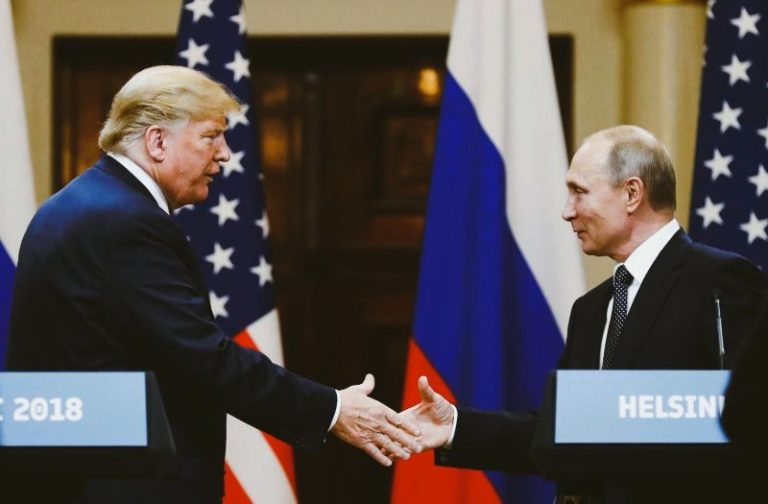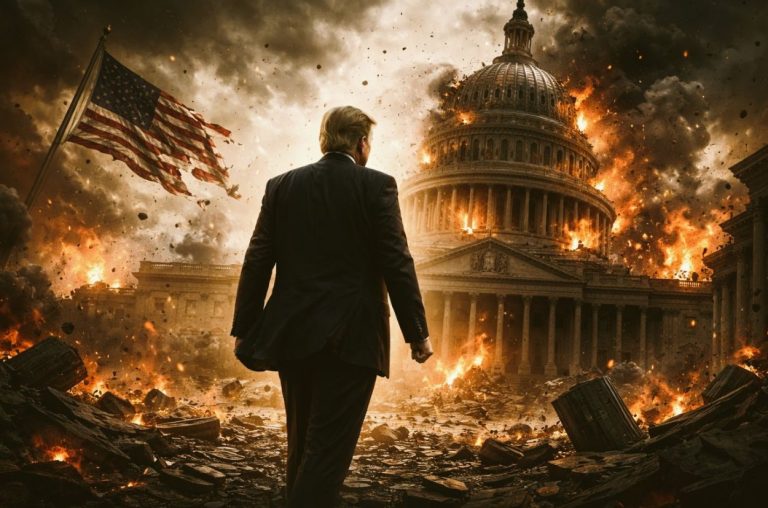

If Republicans’ names are scrubbed and Democrats’ names are left to burn, then the files are no longer a record of truth but a partisan script. And that may be the point.

By Matthew A. McIntosh
Public Historian
Brewminate
Introduction: A Scandal in the Shadows
The Epstein case has always hovered between courtroom fact and whispered conspiracy. Now it has edged further into dangerous territory. Video footage shows Joseph Schnitt, the acting deputy chief of the Department of Justice, caught on camera stating that all Republican and conservative names would be scrubbed from the Epstein files, while the names of Democrats and liberals would remain.
The comment is telling. It suggests a deliberate manipulation of one of the most sensitive criminal archives in modern American history.
In a climate already thick with distrust, Schnitt’s words may confirm the worst fears about political interference in justice.
The Epstein Files: A History of Obfuscation
Jeffrey Epstein’s records have never been straightforward. From the earliest days of his 2008 plea deal in Florida, observers noticed the unusual secrecy surrounding his network. Names of associates, clients, and visitors to his private residences or flights have trickled out in fragments, often through civil suits or investigative journalism rather than official channels.
The recent wave of document releases has been billed as a step toward transparency. Yet Schnitt’s comment undermines that claim, raising the possibility that what the public is seeing is a curated version of reality, one where political allies are protected while opponents are exposed.
Such selectivity would not only distort the historical record but weaponize it for partisan gain.
Schnitt’s Words and Their Implications
According to reports and raw footage now circulating, Schnitt stated plainly that “every Republican and conservative person’s name” would be removed before the Epstein files were made public. This was not an ambiguous remark open to interpretation. It was direct, categorical, and damning.
What stands out is the brazenness. Federal officials typically hide behind legal language when manipulating disclosures. Schnitt appeared to drop the mask altogether, suggesting confidence that the DOJ under the Trump administration could control both the process and its public narrative. If true, this would mean that the files are not a neutral record of Epstein’s connections but an edited political weapon.
Why Trump and His DOJ Would Care
The connection between Donald Trump and Jeffrey Epstein has been documented for decades. From social appearances in the 1990s to Epstein’s use of Mar-a-Lago as a backdrop for parties, the association has been undeniable. Trump has since distanced himself, claiming he was never close to Epstein and was one of the first to bar him from his properties.
Yet recent revelations complicate this narrative. Emails show Epstein instructed Ghislaine Maxwell to remove Trump’s name from lists of associates. Maxwell herself told DOJ officials that she never saw Trump act inappropriately, testimony that curiously aligned with Trump’s own defense.
In that light, Schnitt’s comment appears not as an isolated slip but as part of a broader effort to rewrite Trump’s proximity to Epstein into something harmless, while leaving the names of Democrats untouched to feed partisan outrage.
A Weaponized Transparency
Transparency is meant to clarify. But selective transparency can obscure more than silence. By releasing only names tied to Democrats while hiding Republicans, the DOJ would transform a case of bipartisan rot into a narrative of one-sided corruption.
This strategy echoes historical examples where governments have manipulated disclosures to target enemies and shield allies. During the McCarthy era, lists of supposed communist sympathizers were curated for maximum political effect. In authoritarian regimes, archives are often rewritten to protect those in power while vilifying opponents. Schnitt’s comment suggests that America may be inching closer to such practices.
The Bureaucracy of Disappearance
The mechanism for altering the Epstein files is deceptively simple. The Bureau of Prisons and the DOJ control access to case documents. Redactions, justified under privacy or security exemptions, allow names to vanish without explanation. Once a name is removed from the public version of a file, it becomes nearly impossible for outsiders to prove manipulation occurred.
In Schnitt’s framing, this bureaucratic sleight of hand would not be neutral but overtly partisan. That makes his remark more alarming. If true, it would show that institutions designed to safeguard the public interest are being bent toward protecting the political fortunes of one man and his party.
Public Trust and the Collapse of Neutrality
At stake is not only the Epstein case but the credibility of American justice itself. When citizens believe that files are doctored to serve political ends, faith in institutions erodes. For survivors of Epstein’s abuse, this adds another layer of betrayal: the truth of their abuser’s connections might be twisted or erased entirely for political expediency.
The scandal also underscores a larger crisis. If one administration can alter records to protect its allies, what prevents the next from doing the same? Neutral justice, the principle that laws apply equally to all, risks collapsing into a system of partisan scorekeeping.
What Happens Next
Democrats in Congress have already demanded answers regarding Maxwell’s transfer and the broader handling of Epstein-related disclosures. Schnitt’s statement is certain to amplify these calls. Whether hearings, subpoenas, or further leaks will follow remains uncertain.
For now, the video itself stands as damning evidence, a reminder that sometimes corruption does not hide behind closed doors but speaks openly, assuming impunity. The question is whether the public will accept this editing of history or demand accountability from those reshaping it.
Conclusion: The Peril of Erased Truths
Ghislaine Maxwell’s testimony, Epstein’s emails, and now Schnitt’s recorded remark form a disturbing pattern. The Epstein saga, far from being a settled case, continues to expose how power protects itself. If Republicans’ names are scrubbed and Democrats’ names are left to burn, then the files are no longer a record of truth but a partisan script.
What is being erased is not just names but the principle that justice must remain blind. Once lost, that principle is hard to recover. And if Schnitt’s comment proves prophetic, the Epstein files may become less a window into corruption and more a mirror reflecting the corruption of those releasing them.
Originally published by Brewminate, 09.16.2025, under the terms of a Creative Commons Attribution-NonCommercial-NoDerivatives 4.0 International license.


